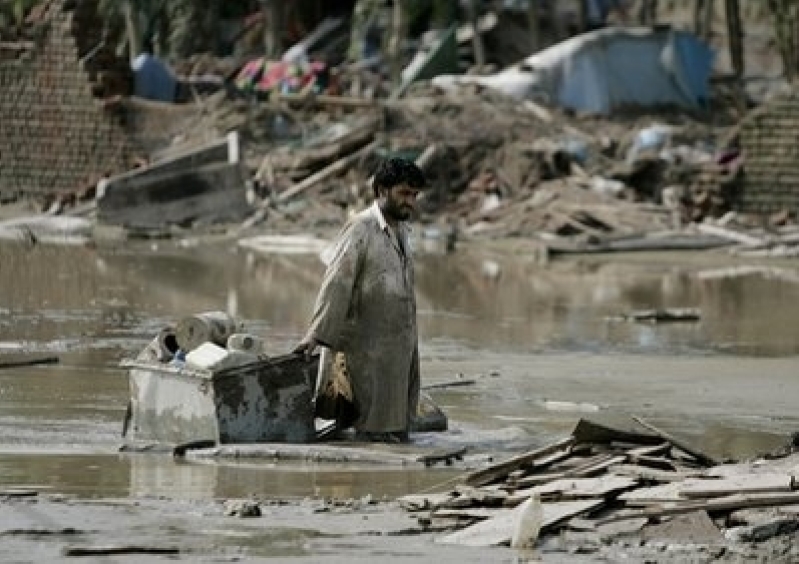
With an estimated 20 million people affected by the devastating floods in Pakistan, it is “almost incomprehensible” to imagine the response needed, said a Christian relief group Sunday.
“The scale of the response needed by all humanitarian actors is almost incomprehensible,” said Anita Cole, program development and quality director for World Vision Pakistan.
Cole said World Vision is assessing the situation in the Southern district of Sindh and preparing human and financial resources to ramp up programs in Pakistan to respond to the floods once immediate dangers are over.
World Vision has already distributed food and water to more than 21,000 people. Soon it plans to distribute water purification packets and hygiene kits to 150,000 people, tents to 22,500, cooking items to 75,000, and food to at least 37,500 people. The agency has also opened five emergency health clinics and treated more than 1,100 people who are suffering from water-borne diseases and other illnesses related to the floods.
Some 20 million people have been affected by the worst flooding in Pakistan’s history, said Prime Minister Yousuf Raza Gilani on Saturday. The area affected is roughly the size of Italy.
Billions of dollars worth of crops and food storages and nearly 900,000 homes were damaged in the massive flooding that began over two weeks ago. More than 1,500 people are dead and at least 2 million people are homeless.
“This has been a heart-wrenching day for me,” remarked U.N. Secretary-General Ban Ki-moon to reporters on Sunday after flying over the affected areas with Pakistan President Asif Ali Zardari. “I will never forget the destruction and suffering I have witnessed today. In the past I have witnessed many natural disasters around the world, but nothing like this.”
“The scale of this disaster is so large so many people, in so many places, in so much need.”
The United Nations is seeking $459 million to help provide Pakistan’s flood-affected families with food, clean drinking water, shelter, medicine, and non-food items. As of Saturday, the U.N. Office for the Coordination of Humanitarian Affairs (OCHA) reported that it has only received 20 percent, or $93 million, of the funding it needs for initial flood response.
A top priority for the OCHA is to provide clean water to flood victims amid the rising rate of diarrhea diseases. The U.N. plans to provide clean water and food to at least 6 million people as soon as possible.
“These unprecedented floods demand unprecedented assistance,” stated Ban. “The flood waves must be matched with waves of global support.”
The flooding follows a powerful earthquake that struck the country in 2008 and 2009. A massive earthquake had also hit in 2005 and a series of floods followed in 2006 and 2007. Additionally, millions of people had been displaced by a conflict between the Pakistan military and militants in the Northwest region of the country.
Relief groups highlighted that the Pakistani people had not recovered from the previous disasters when the current floods wiped away whatever little rebuilding progress they made.
“Again everything they had is taken away from them,” commented Dennis Joseph, associate director of Church World Service program in Pakistan. “At this moment it is not just their material well-being but also their physical well-being, which includes their mental well-being that is important.”
Ban noted during the news conference that more rain is expected in the coming weeks as Pakistan faces monsoon season.







